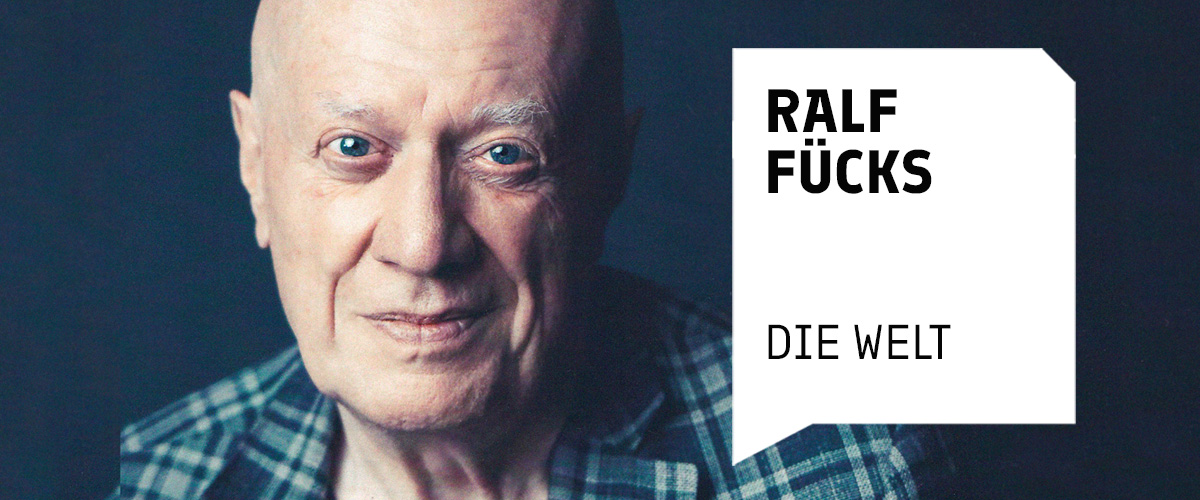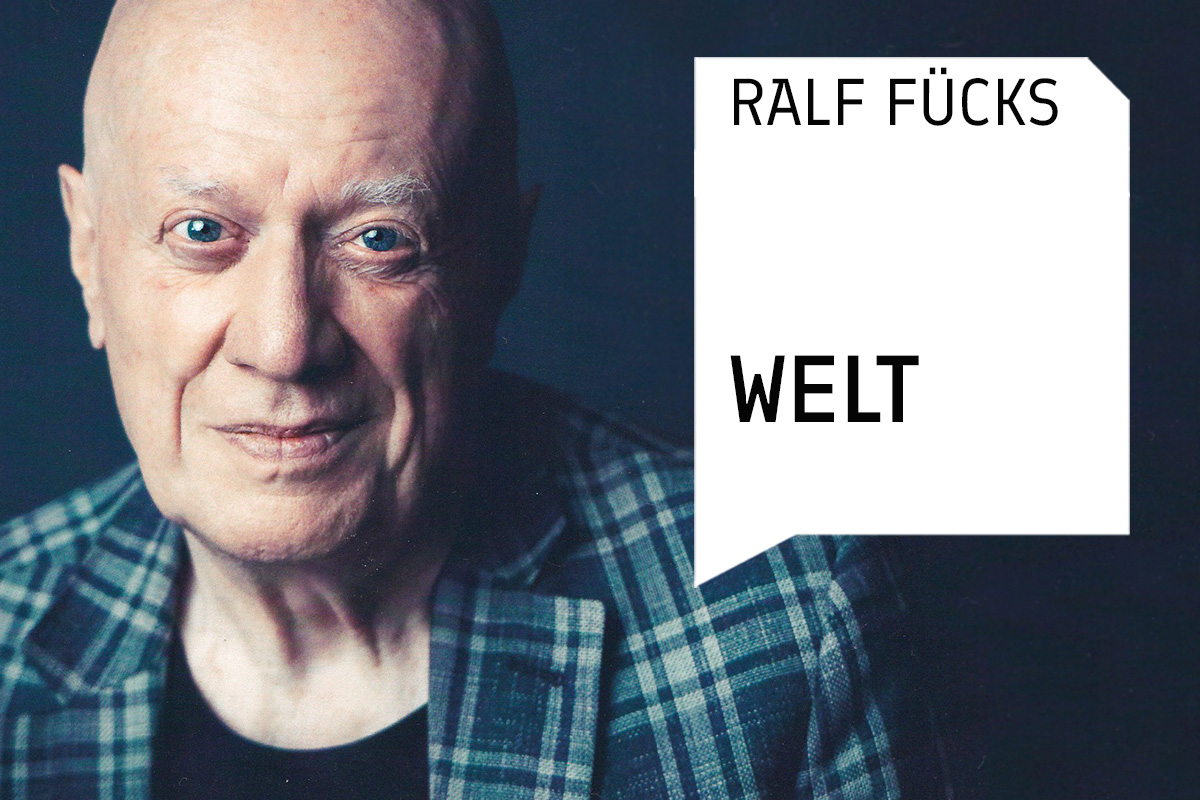You can’t win a war with ‘a little bit’ – Notes from Kyiv and Lviv

Ralf Fücks travelled to Ukraine with a LibMod tour group. The following article describes his impressions and draws political conclusions. The text first appeared in Welt am Sonntag.
1
After three and a half years of war, many are tired and exhausted. But Ukraine’s spirit of resistance remains unbroken. In a representative survey, 75% of respondents are in favour of a ceasefire backed by international security guarantees. At the same time, a large majority rejects Russia’s demands. They want an end to the war, but not a sham peace at any price.
2
Russia is constantly throwing new forces to the front and increasing its arms production. In contrast, the Ukrainian side suffers from a chronic shortage of soldiers, weapons and ammunition. Nevertheless, there is no fear of the front collapsing in the foreseeable future. However, Ukraine will remain trapped in a defensive stalemate as long as the Europeans do not finally muster the strength to support it with all their might.
3
Ukrainians are realists. They have no illusions about a quick end to the war. They know that Putin’s hunger will not be satisfied by throwing part of Ukraine to him as a snack. Russia’s primary goal remains to bring the whole of Ukraine back under Moscow’s control. It is the key to restoring the empire and shifting the spheres of power in Europe. Putin will only abandon this goal if the military balance of power shifts against him and he finds himself in dire economic straits. These are the two levers that Europe must apply. Diplomacy only has a chance if Putin loses all prospect of victory.
4
All talk of security guarantees is putting the cart before the horse. The priority must be to strengthen Ukraine’s defence here and now, including its offensive capabilities. More air defence is sorely needed, but it is not enough. In future, Russia will attack with a thousand drones and more at the same time, flanked by ballistic missiles and cruise missiles. Ukraine will only be able to withstand this if it can attack Russian arms factories, airports, railway lines, power stations and refineries far behind the front lines. In order to break Russia’s offensive capability, it must become capable of attacking itself. The increasing domestic production of drones and cruise missiles (‘Flamingo’) does not make the delivery of Western systems superfluous. This also applies to ‘Taurus’. The Ukrainians are no longer talking about it publicly, but the issue is not off the table.
5
At present, Russia has a clear advantage in terms of recruitment potential, armament and arms production, partly due to support from Iran, North Korea, Belarus and China. However, as soon as Europe throws its full weight into the balance, the balance of power will shift. The economic basis of the Russian regime is already crumbling. All indicators point to stagflation, and the civilian economy is shrinking. Putin will not be able to sustain this war indefinitely if oil export revenues decline and imports of critical technology via third countries are blocked.
6
To date, there is no common European position on how this war should end. Without clear goals, there is no yardstick for measuring what means are necessary. This also includes clarity on the conditions for a ceasefire:
- No recognition of Russian territorial claims.
- No restriction of Ukraine’s domestic and foreign policy sovereignty.
- No restrictions on Ukraine’s military strength.
- Ukraine’s accession to the EU is non-negotiable.
It is high time that Europeans finally clearly articulate where our red lines lie. Of course, this presupposes that words are then followed by deeds.
7
The most effective way to strengthen Ukraine’s defence is to expand arms cooperation: direct investment in the Ukrainian arms industry, joint ventures and financial aid so that Ukrainian companies can scale up their production as quickly as possible. Ukraine is a real-life laboratory for modern warfare; European defence will also benefit enormously from deeper cooperation.
8
There is considerable irritation about the delay in starting EU accession negotiations: are other European governments hiding behind Orbán and Fico? The opening of negotiations is an important political and moral signal. Moreover, accelerated accession negotiations are the key lever for consolidating democracy and the rule of law in Ukraine.
9
Key statement by a military expert: ‘You can’t win a war with a little bit.’ While Putin is going all out, Berlin, Paris and other capitals still lack determination. A prime example is the refusal to reallocate the 250 billion in Russian state funds parked in Europe for the arming and reconstruction of Ukraine. People see risks everywhere and overlook the fact that a Russian victory in Ukraine is the biggest risk of all. Then Europe will be in turmoil, and the rest of the world will see this as a sign of European impotence.
10
‘Unbroken’ is the name of a modern rehabilitation centre for war veterans in Lviv. It breaks your heart to see people who have suffered serious injuries. At the same time, the centre is a place of great strength. Don’t give up. Start afresh despite the pain. The way a society treats the victims of war is a mark of its character.
In Lviv, we also met Myroslav Marynovych, an intellectual authority in Ukraine. In the 1970s, he was one of a small group of Soviet dissidents who were sentenced to seven years in a labour camp and subsequent exile. When asked how he sees the future of his country, he replied: “I am a long-term optimist. Who could have foreseen the collapse of the Soviet Union and the rebirth of Ukraine? Even the Putin regime is not as stable as many in the West think. And in Ukraine, the spirit of freedom cannot be extinguished again. Europeans must overcome their timidity. How true!
![]()
Hat Ihnen unser Beitrag gefallen? Dann spenden Sie doch einfach und bequem über unser Spendentool. Sie unterstützen damit die publizistische Arbeit von LibMod.
Spenden mit Bankeinzug
Spenden mit PayPal
Wir sind als gemeinnützig anerkannt, entsprechend sind Spenden steuerlich absetzbar. Für eine Spendenbescheinigung (nötig bei einem Betrag über 200 EUR), senden Sie Ihre Adressdaten bitte an finanzen@libmod.de
Verwandte Themen
Newsletter bestellen
Mit dem LibMod-Newsletter erhalten Sie regelmäßig Neuigkeiten zu unseren Themen in Ihr Postfach.





